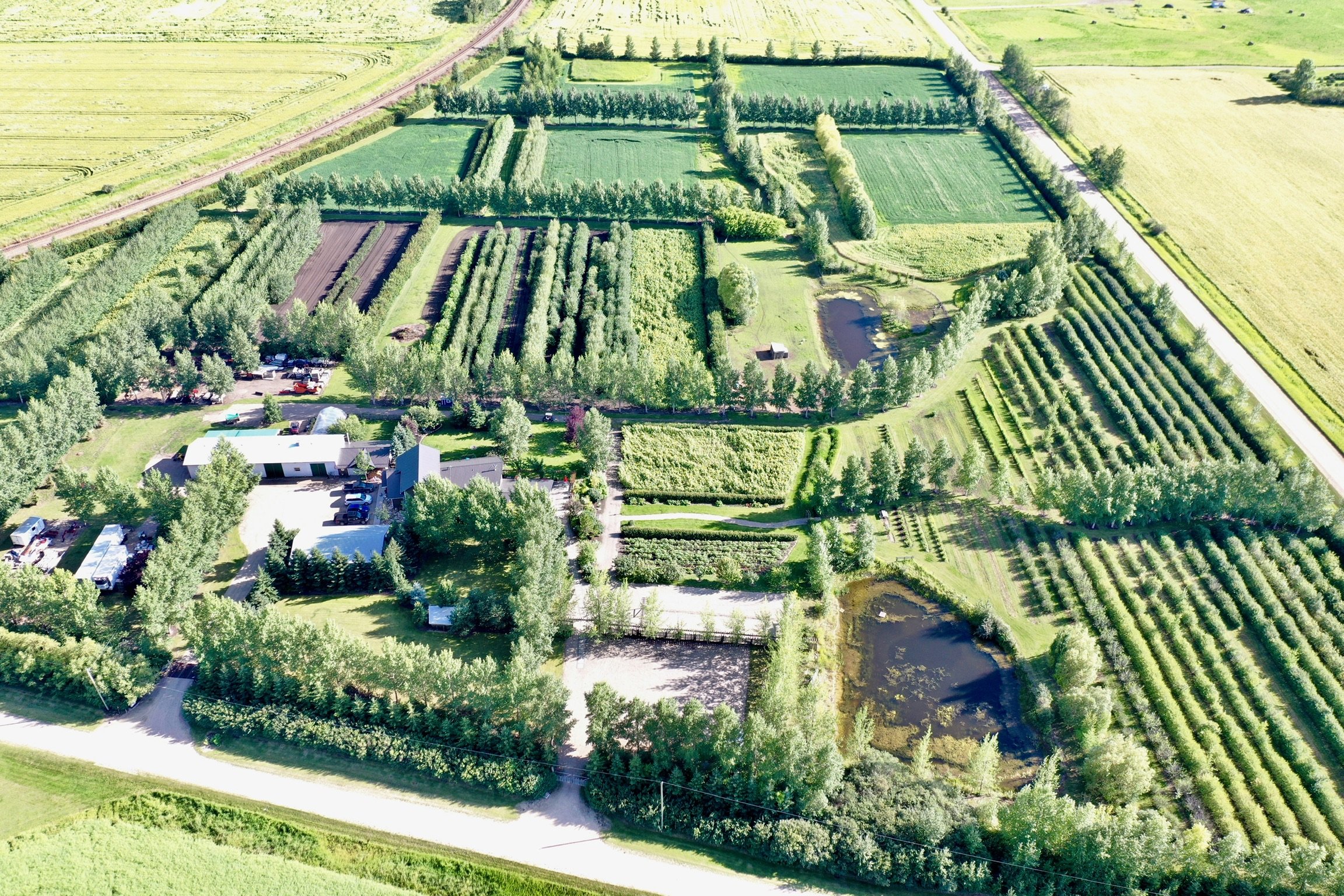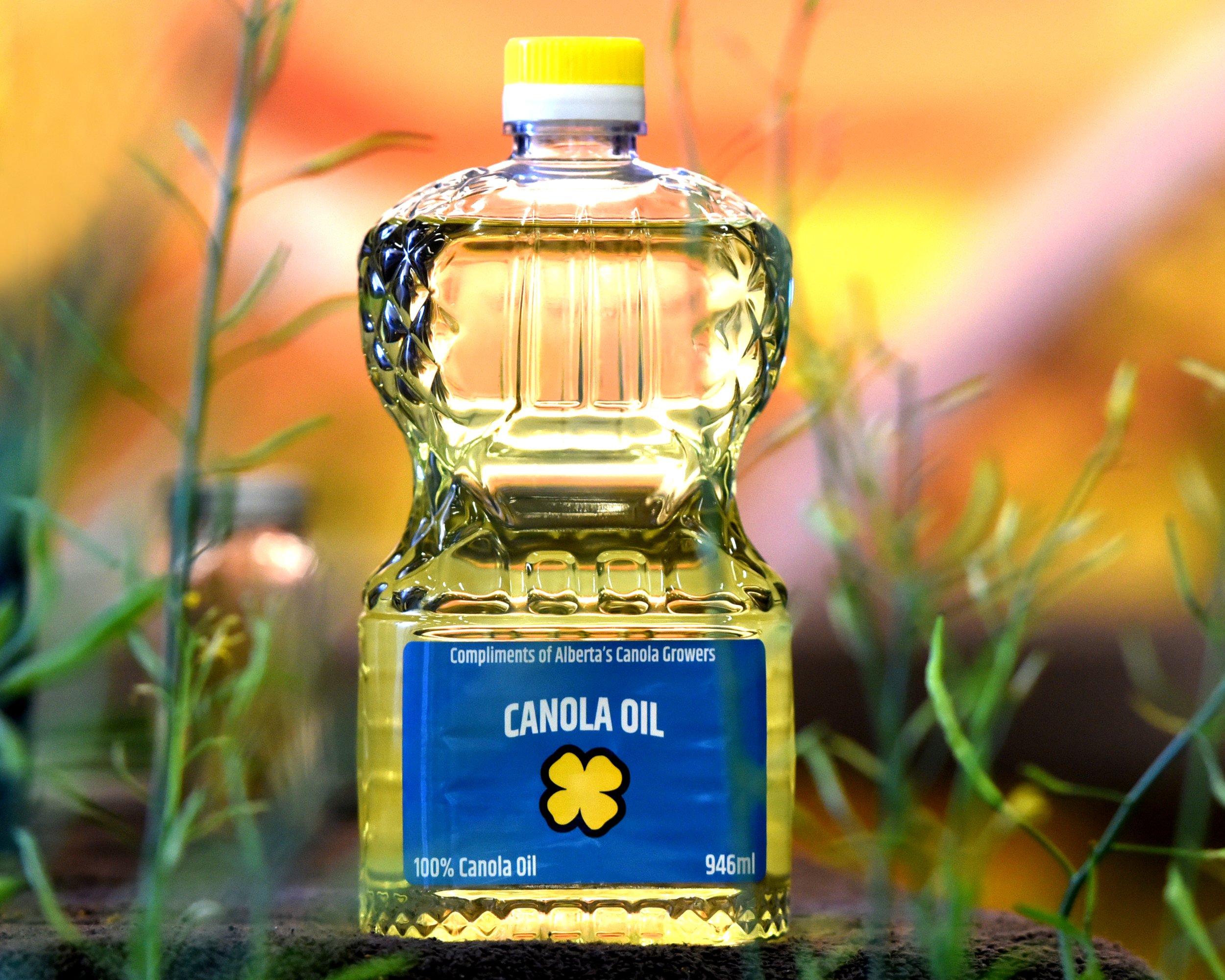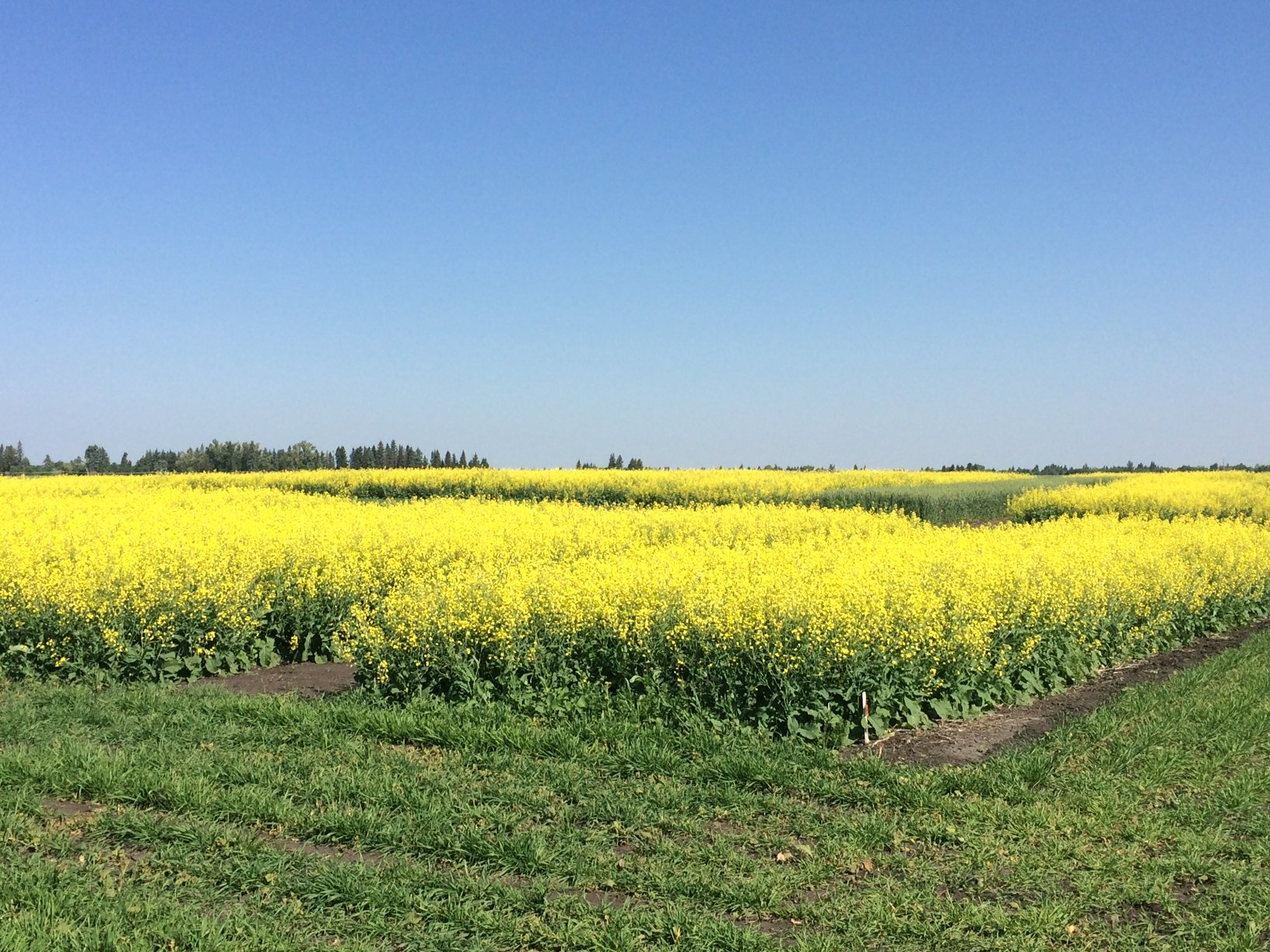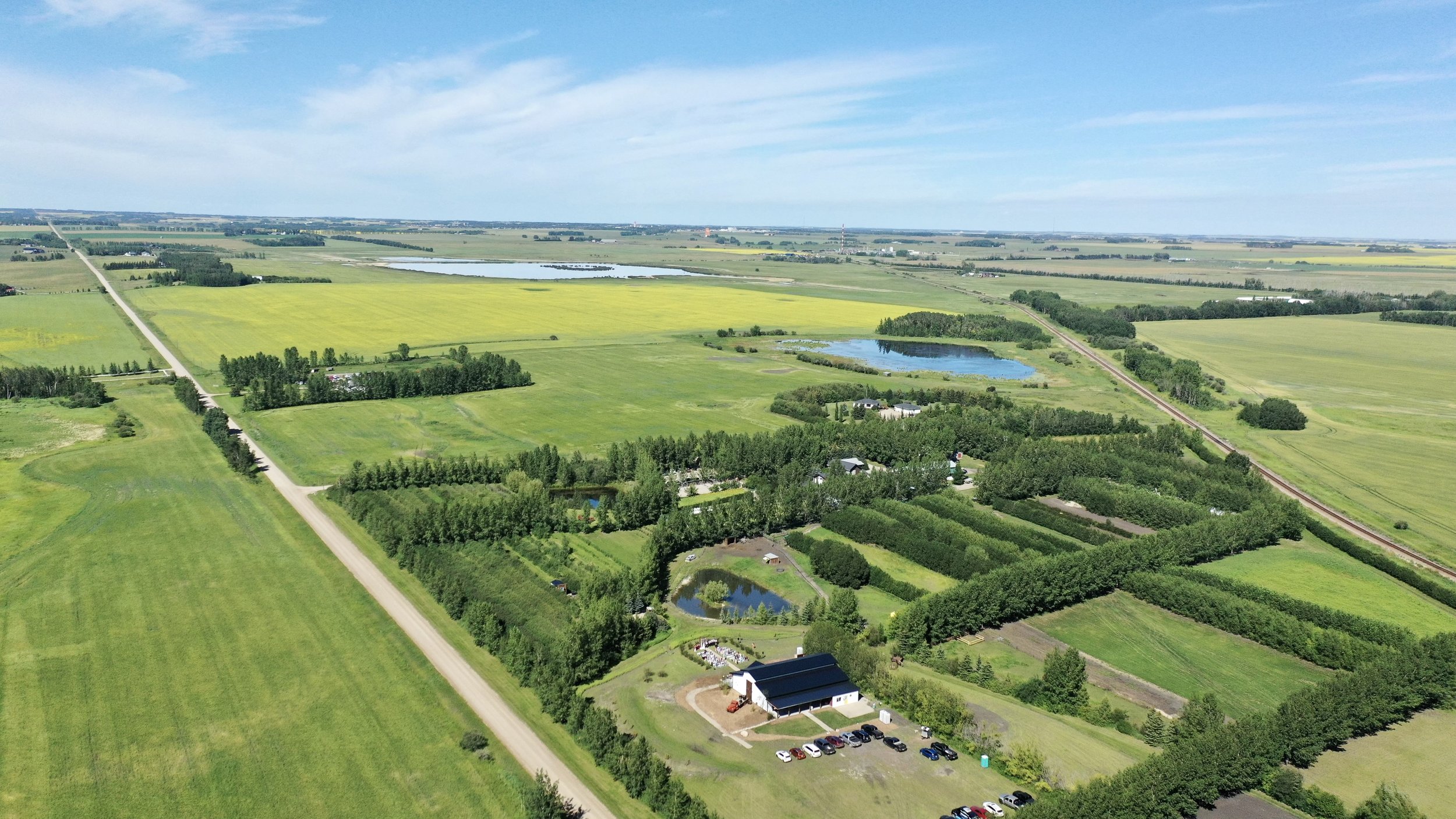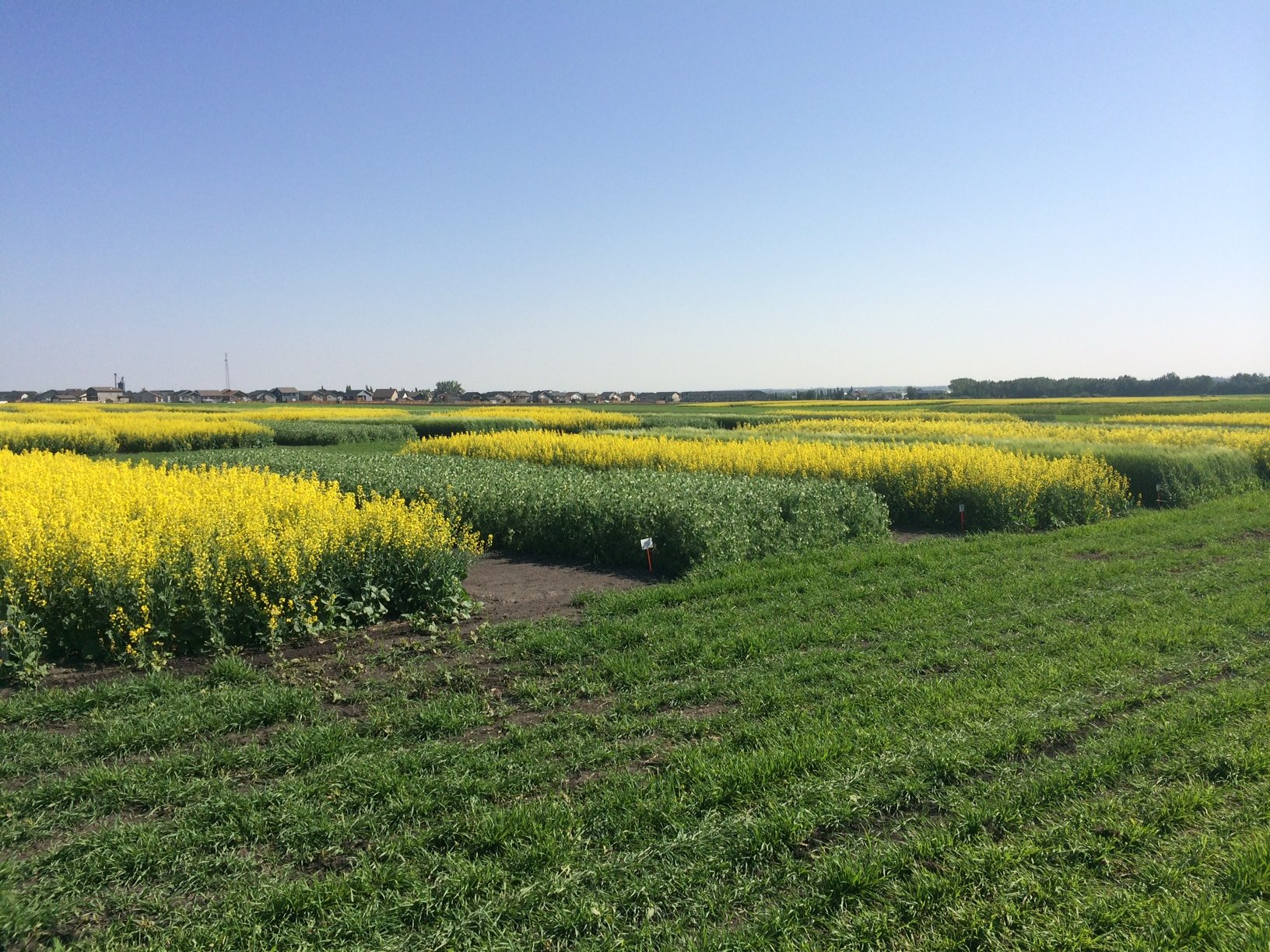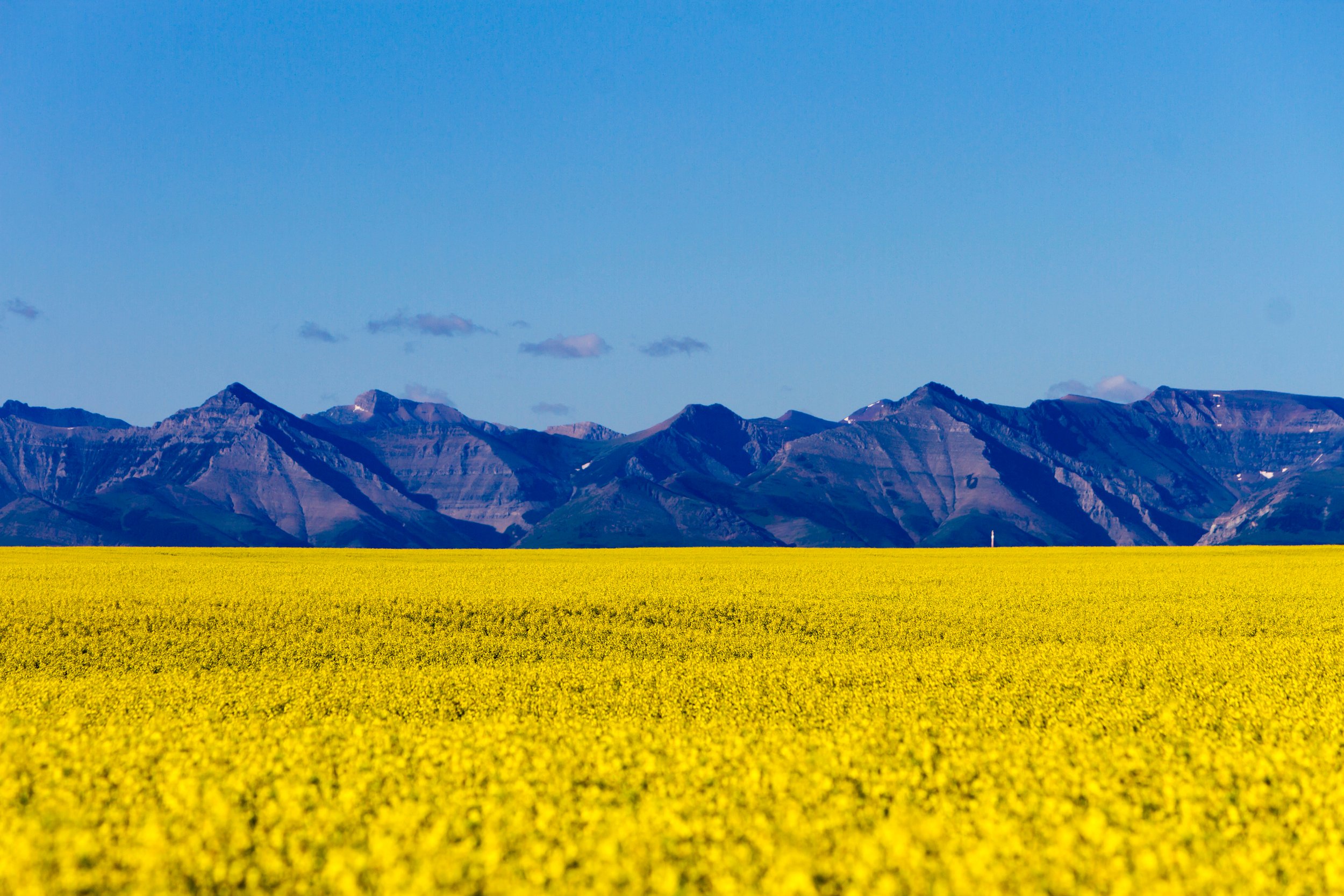
Canada’s Canola Frontier
Canola is Canadian ag innovation! The crop was bred by Canadian scientists in the 1970s, and from small beginnings, it has grown into the single largest crop seeded by Canadian farmers and a powerhouse of economic growth and valued added processing. The oil is sought after for its versatility and healthiness as a cooking oil, the meal a valuable feed ingredient, and as a feedstock in biofuels canola offers significant GHG reducing properties.
From across the vast production zone spanning 4,000 km, Canada's 43,000 canola farmers plant 20-22 million acres (8-9 million hectares) of canola every year and harvest on average 20 million tonnes on canola seed. Annually, canola contributes $29.9 billion to Canada’s economy, supports 207,000 Canadian jobs, and has robust exports (seed, oil, and meal) to more than 50 countries throughout the world.
While breeding canola was the beginning of the innovation journey for the crop, the concept of innovation is constantly evolving and can be seen throughout the sector from the rapid adoption of more sustainable growing practices on the farm, new seed varieties that enhance resilience and productivity of the crop, and new processing opportunities for food, feed, and fuel.
Immerse yourself in all things canola on our Canola Frontier tour! We’ll see, touch, taste and maybe even smell canola. We’ll explore the fascinating history and science behind this Made in Canada crop, visit a canola farm to learn how its grown, and hear about the many existing and future benefits canola offers to the world.
Schedule (subject to change)
10:00 am - Depart Olds College
10:30 am - Arrival at Central Alberta Co-op Innisfail Agro Centre
Our first stop is also one of the first stops a farmer makes when planning for the growing season. Whether it's seed, fertilizer, crop protection, or beyond, the Central Alberta Co-op Agro Centre provides farmers with products they need to maximize their crop yields. Their 37,000-square-foot fertilizer storage facility has enough space to store approximately 15,000 tonnes of granular fertilizer.
12:00 pm - Depart Central Alberta Co-op Innisfail Agro Centre
12:30 pm - Arrival at Antler Valley Farms (Lunch and tour of farms)
Next you will get a chance to meet a few canola farmers who farm in the region. You will tour their farms, get that perfect canola shot and learn more about how their farming practices have changed over the years, their successes and what keeps them up at night.
2:30 pm - Depart Antler Valley Farms
3:00 pm - Arrival at Lacombe Research and Development Centre
The endless research being done on canola is essential to canola farmers and the industry. At our next stop - the Lacombe Research and Development Centre, you will get to meet some of the researchers and learn about the projects they are working on. While some projects target agronomic practices that can be applied on-farm, other projects explore new uses for canola or help regulators understand the challenges that farmers face and forge better policies.
The Lacombe Research Centre was established in 1907 and is one of a network of 20 national agricultural research and development centres operated by Agriculture and Agri-Food Canada. With a land base of more than 800 hectares, the Centre conducts research in field crops and livestock production relevant to the central Alberta region. Working closely with industry partners, the Centre’s areas of research are planned and developed so that new discoveries and knowledge can form the basis for sector innovation.
4:00 pm - Depart Lacombe Research and Development Centre
5:00 pm - Arrival at Patterson Grain Terminal
At Paterson Grain Terminal, you will learn about the journey of canola from the farmers field to export or to crush. The terminal is a high efficiency terminal that can store 2,225,000 bushels of grain, ship 75,000 bushels per hour, clean 8,800 bushels per hour, and receive 32 Super B trucks per hour.
Established in 1908 as N.M. Paterson & Company Ltd., Paterson GlobalFoods (PGF) is a private, family owned, agri-food business with a long-standing history deeply rooted in Canadian agriculture. The company operates 36 terminals, elevators and ag centers across the Canadian Prairies. PGF prides itself on the efficient use of its large scale operations and vertical integration of resources. These practices continue to allow PGF to achieve a competitive advantage in international agriculture by utilizing unique efficiencies in commodity growing, gathering, trading, processing, transportation and milling.
6:00 pm - Depart from Patterson Grain Terminal
6:30 pm - Arrival Cork and Crate Farms (Dinner)
We will end the day at Cork and Crate Farms (Estates). Located on 27 acres of fenced & fully treed paradise, Cork and Crate Farms is a year-round event centre in the heart of Central Alberta in Mountain View County surrounded by agriculture: fields, cattle, ag entrepreneurs of all kinds!
The owners James and Rhonalyn Carpenters’ roots are in farming. Rhonalyn grew up on a third generation mix grain and purebred Charolais farm in Saskatchewan. They farmed with her parents until they bought them out in 2016 and now lease it out. In 1997, James started a Grain Export company and operated it for almost 10 years. If you need someone to grade canola, wheat or other grains, he can make it happen as he has enjoyed his success in Agriculture. James recently was in India on a three-city tour speaking about investment in rural Alberta!
You will end the Canola Frontier tour at a venue that offers charming views of farming landscapes in the background at this privately secluded space, that has an array of small animals, sunflower fields and saskatoon orchards. You won’t want to leave!
9:00 pm – Depart from Cork and Crate farms for Olds College
End of tour!


